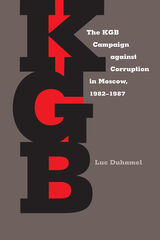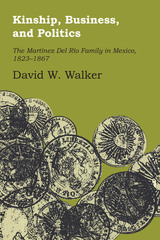2 start with K start with K

Inthis original study,Luc Duhamel examines the KGB at its pinnacle of power. The appointment of former KGB director Yuri Andropov as general secretary of the Communist Party in 1982 marked the height of KGB influence. For the first time since Stalin, Beria, and the NKVD, there was now an unquestioned authority to pursue violators of Soviet law, including members of the Communist Party. Duhamel focuses on the KGB’s investigation into Moscow’s two largest trade organizations: the Chief Administration of Trade and the Administration of the Moscow Fruit and Vegetable Office. Like many of their Soviet counterparts, these state-controlled institutions were built on a foundation of bribery and favoritism among Communist Party members, workers, and their bosses. This book analyzes the multifarious networks of influence peddling, appointments, and clientelism that pervaded these trade organizations and maintained their ties to party officials.
Through firsthand research into the archives of the Andropov-era KGB and the prosecutor general’s office, Duhamel uncovers the indictment of thousands of trade organization employees, the reprimand of Communist Party members, and the radical change in political ideology manifested by these proceedings. He further reveals that despite aggressive prosecutions, the KGB’s power would soon wither, as the agency came under intense scrutiny because of its violent methods and the ghosts of the NKVD. The reinstatement of Moscow city government control over the trade organizations, the death of Andropov, and the rising tide of democratic reform would effectively end the reign of the KGB and its anticorruption campaigns.

The Martínez del Río family was a vigorous contestant in the highly politicized economy of early national Mexico. David Walker’s case study of its successes and failures provides a unique insider’s view of the trials and tribulations of doing business in a hostile environment. The family’s ordeal in Mexico—a series of personal dislocations and traumas—mirrored the painful contractions of an old society reluctantly giving birth to a new nation.
Using previously undiscovered primary source materials (including the private correspondence and business records of the family, public notary documents, transcripts of judicial proceedings, and the archives of Mexico’s Ministry of Foreign Relations and the British Foreign Office), Walker employs family history to analyze problems relating more generally to the development of state and society in newly independent Mexico.
The processes of socioeconomic formation in Mexico differed from those of Western Europe and the United States; accordingly, entrepreneurial activity had markedly contrasting implications for economic development and class formation. In the downwardly spiraling economy of nineteenth-century Mexico, economic activity was a zero-sum game. No new wealth was being created; most sectors remained stagnant and unproductive. To make their fortunes, empresarios, the Mexican capitalists, could not rely on income generated from authentic economic growth. Instead, they exploited the arbitrary acts of the interventionist Mexican state, which proscribed the free movement of factors within the marketplace. Speculation in the public debt took the place of more substantive undertakings. Coercive state power was diverted to create artificial environments in which otherwise inefficient and unproductive enterprises could flourish. But however well the empresarios might imitate the outward forms of industrial capitalism, they could not unlock the productive capacity of the Mexican economy. Instead, they and their allies and rivals engaged in destructive struggles to manipulate the state for personal gain, to the detriment of class interests, economic growth, and political stability.
READERS
Browse our collection.
PUBLISHERS
See BiblioVault's publisher services.
STUDENT SERVICES
Files for college accessibility offices.
UChicago Accessibility Resources
home | accessibility | search | about | contact us
BiblioVault ® 2001 - 2024
The University of Chicago Press









